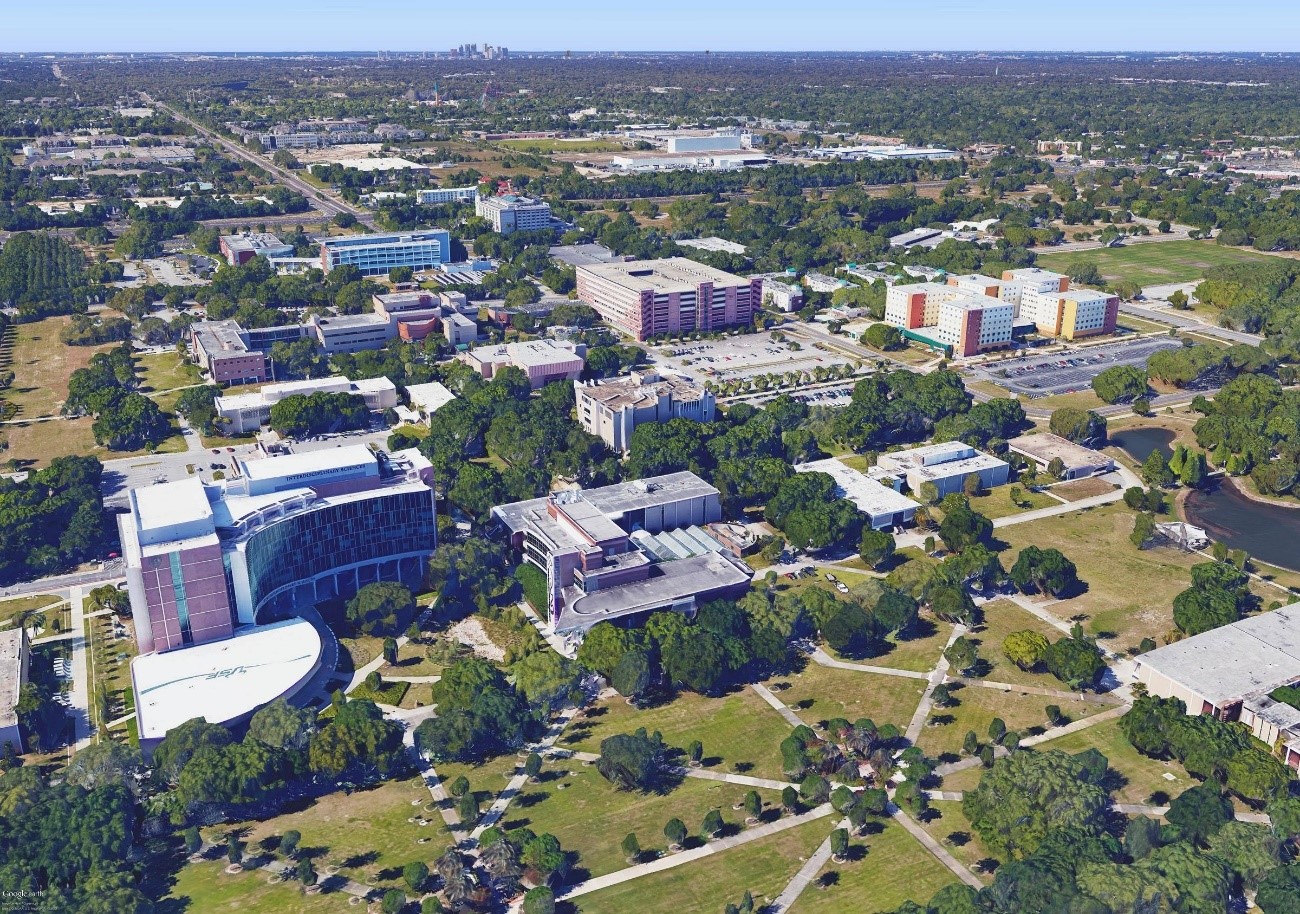BOT approves five-year plan for new facilities on all campuses

From remodeling to the construction of new facilities, the Board of Trustees (BOT) on Tuesday afternoon approved the university’s five-year Capital Improvement Projects (CIP) plan, including the Capital Improvement Trust Fund (CITF) projects, by unanimous vote.
Intended to present the additional academic support facilities needed for a five-year period, the 2021-2022/2025-2026 CIP plan consists of six different projects across all three campuses — Tampa, St. Petersburg and Sarasota-Manatee. The deadline to submit the CIP to the Board of Governors (BOG) is July 1.
Each school in the state university system is required to complete an institutional budget request to fund major projects exceeding $2 million in construction costs.
Once the BOT submits the plan, the BOG will evaluate all projects from all 12 universities on a point system for Public Education Capital Outlay (PECO) funding. The funding is Florida’s primary source for the “capital needs of public schools, community colleges and universities,” according to independent taxpayer research institute Florida TaxWatch.
USF Research and Innovation Vice President David Lechner said “those that rank at the top, get the funding.”
The university will submit the plan to the BOG as a prioritized list with the Judy Genshaft Honors College at the top.
After former USF President Judy Genshaft announced a $20 million donation to build the Judy Genshaft Honors College, the university began fundraising for the building’s construction. With a tentative budget of $64 million, the college has raised $27 million so far.
Lechner said a tentative budget was calculated for each project as the official budget will only be announced once the university receives the construction drawings and bids from contractors.
Expanding the honors college from about 15,000 to 80,000 square feet, Lechner said the new building will support the university’s goals to move into the top 25 U.S. News and World Report rankings and, eventually, achieve AAU status.
Besides the new honors building, the CIP also included the remodeling of two staple facilities on the Tampa campus.
Considered one of the primary lab facilities on campus, the bioscience research labs currently face “significant research inefficiencies” as well as outdated and nonfunctioning spaces.
With a tentative budget of $18.6 million, the labs’ remodeling would increase capacity to at least 78 grads and 104 undergraduate students as well as reconfigure space to make room for six open labs, with each expanding to 6,500 square feet, a big addition to the 45 small labs currently available.
The bioscience research labs aren’t the only outdated and inefficient facilities.
As one of USF’s largest colleges, the College of Engineering currently struggles with old and unusable space and equipment as well as infrastructure challenges with the electrical and cooling systems.
With that in mind, the CIP plan proposed the remodeling of two buildings in the College of Engineering — ENR and ENG.
The $12.3 million project would provide 19,000 square feet of remodeled research space, emphasis on materials, science and infrastructure, and recruitment of seven new faculty and 28 research graduate assistants, as well as $4.5 million in new annual research expenditures, according to Lechner.
As a way to create and expand current STEM-related academic programs, the plan included the creation of the Academic STEM Facility on the Sarasota-Manatee campus.
Since 2013, Sarasota-Manatee has been hosting STEM academic programs with limited on-campus lab space and off-campus instructional labs at Mote Marine Laboratory.
“It’s also going to invite the community … where we can host academic conferences, we host community events and really open up the [Sarasota-Manatee] campus to the greater Sarasota community,” Lechner said.
The tentative budget for the project is $49 million.
With the goal of bringing together the College of Marine Science (CMS), College of Engineering and the College of Arts and Sciences under a consolidated university, the CIP proposed the establishment of a new facility on the St. Pete campus.
The new Oceanographic and Environmental Sciences (OES) Research and Teaching Facility would “expand the programs offered by the CMS, offer teaching labs, research labs and technical core support space for STEM programs as well as a home for a new USF Center of Excellence and the home for the Florida Institute of Oceanography (FIO),” according to the CIP plan.
The $80 million project would remodel the majority of the military barracks used by the St. Pete campus as well as create a 65,000-square-foot building.
The last section of the CIP plan consisted of the remodeling of the MHF building, located on USF Magnolia Drive, to house University Police (UP).
Located in a 1950s wood frame house on USF Genshaft Drive, the current facility has inadequate spaces where closets are used as offices. UP also faces “significant plumbing and electrical issues” at its current location, according to Lechner.
With the relocation, Lechner said UP will have a better command, control and enforcement facility.
Included in the CIP plan, the CITF projects will also be submitted to the BOG on July 1. These projects, funded by student fees, are specific to each campus.
All students pay CITF fees — a total of $6.76 per credit hour — each semester to fund student facilities. Student Governments from all three campuses approved the CITF before it was passed by the BOT.
On the Tampa campus, CITF would fund the USF Wellness Center Complex Phase I ($27,104,347) and the USF Health Student Resource Center Phase I ($3,272,272).
There are also projects focused on the other campuses, including the Coquina Hall Student Space Modification Phase II ($1,066,781), the University Student Center Remodel ($1,500,000) in St. Pete and the Cocurricular and Wellness Support Facilities Phase VIII ($1,395,934) in Sarasota-Manatee.






